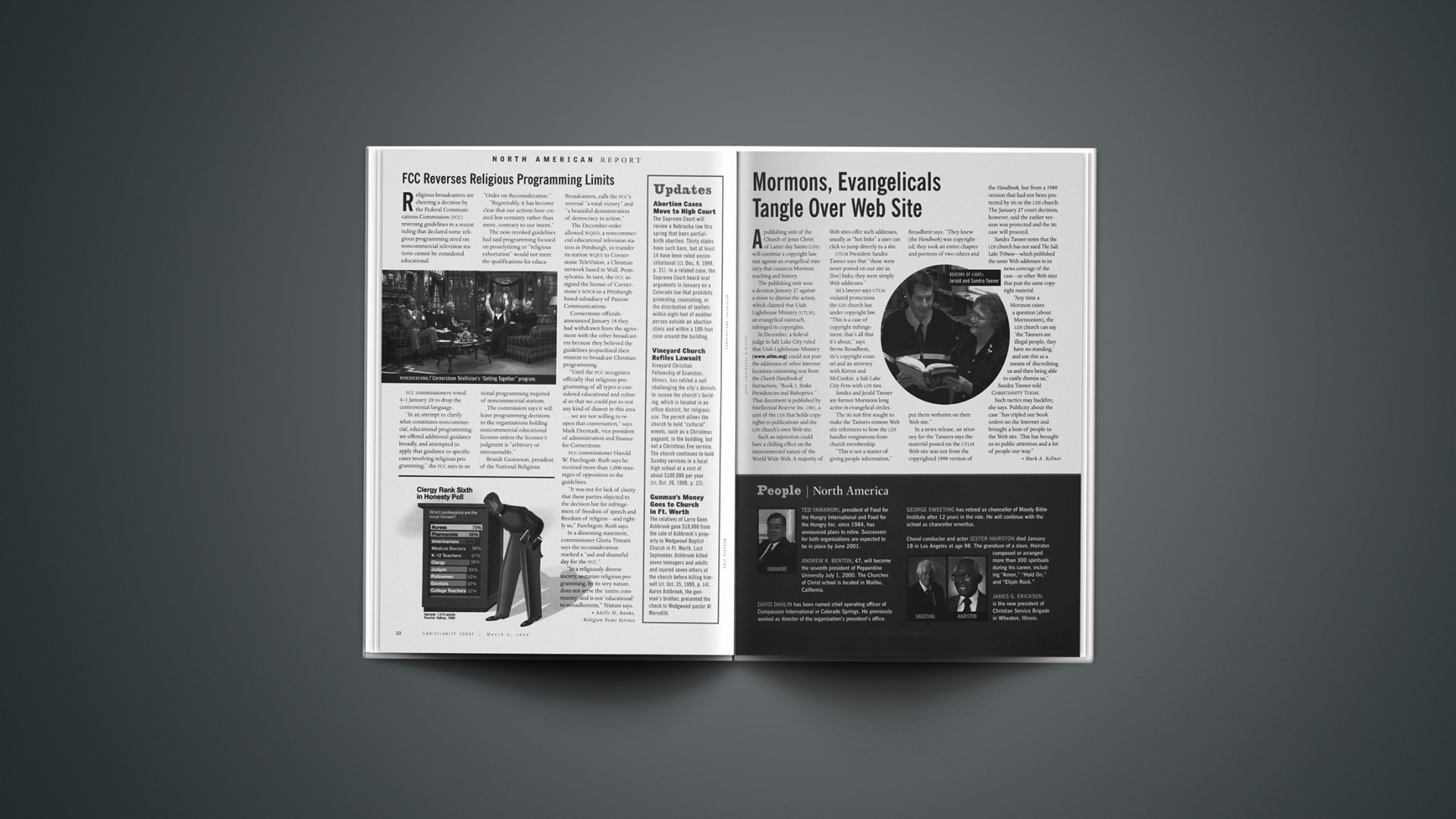Religious broadcasters are cheering a decision by the Federal Communications Commission (FCC) reversing guidelines in a recent ruling that declared some religious programming aired on noncommercial television stations cannot be considered educational.FCC commissioners voted 4-1 January 28 to drop the controversial language.”In an attempt to clarify what constitutes noncommercial, educational programming, we offered additional guidance broadly, and attempted to apply that guidance to specific cases involving religious programming,” the FCC says in an “Order on Reconsideration.””Regrettably, it has become clear that our actions have created less certainty rather than more, contrary to our intent.”The now-revoked guidelines had said programming focused on proselytizing or “religious exhortation” would not meet the qualifications for educational programming required of noncommercial stations.The commission says it will leave programming decisions to the organizations holding noncommercial educational licenses unless the licensee’s judgment is “arbitrary or unreasonable.”Brandt Gustavson, president of the National Religious Broadcasters, calls the FCC’s reversal “a total victory” and “a beautiful demonstration of democracy in action.”The December order allowed WQED, a noncommercial educational television station in Pittsburgh, to transfer its station WQEX to Cornerstone TeleVision, a Christian network based in Wall, Pennsylvania. In turn, the FCC assigned the license of Cornerstone’s WPCB to a Pittsburgh-based subsidiary of Paxson Communications.Cornerstone officials announced January 18 they had withdrawn from the agreement with the other broadcasters because they believed the guidelines jeopardized their mission to broadcast Christian programming.”Until the FCC recognizes officially that religious programming of all types is considered educational and cultural so that we could put to rest any kind of dissent in this area. … we are not willing to re-open that conversation,” says Mark Dreistadt, vice president of administration and finance for Cornerstone.FCC commissioner Harold W. Furchtgott-Roth says he received more than 1,000 messages of opposition to the guidelines.”It was not for lack of clarity that these parties objected to the decision but for infringement of freedom of speech and freedom of religion—and rightly so,” Furchtgott-Roth says.In a dissenting statement, commissioner Gloria Tristani says the reconsideration marked a “sad and shameful day for the FCC.””In a religiously diverse society, sectarian religious programming, by its very nature, does not serve the ‘entire community’ and is not ‘educational’ to nonadherents,” Tristani says.
Copyright © 2000 Christianity Today. Click for reprint information.










